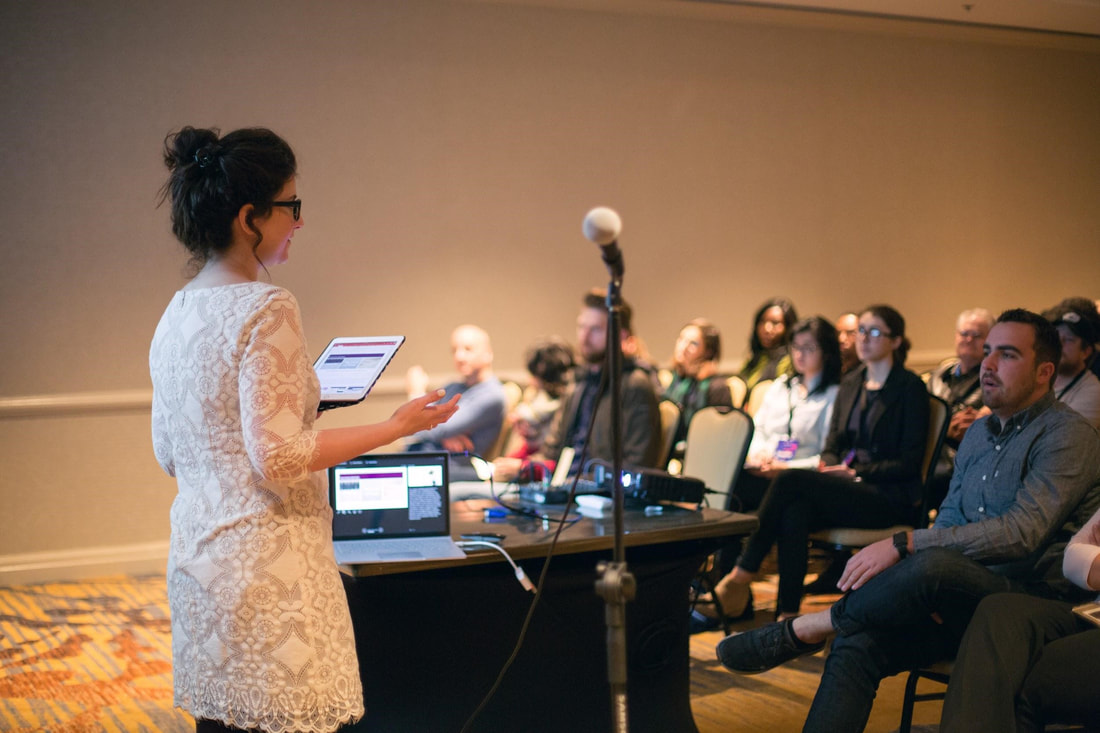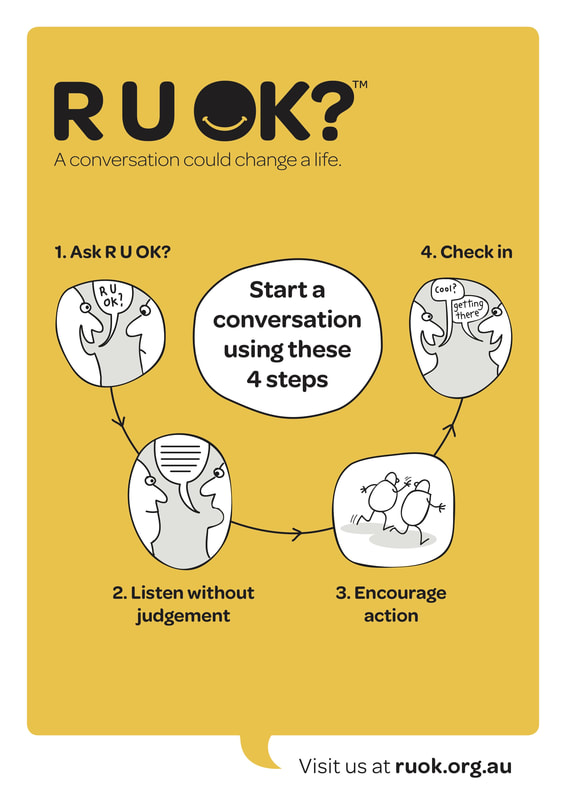Faith Hoyt Communications Intern, Nevada-Utah Conference of Seventh-day Adventists There is a new mission field waiting for the church. No long flights necessary, and the destination doesn’t require learning how to sleep in a mosquito-repelling hammock. As the title suggests, this isn’t a reference to the traditional mission field, but the digital one, accessible from your home computer. The new mission field is the internet. Thus far in 2017, the World Wide Web saw roughly 3.8 billion users. Of that amount, 2 billion are reportedly on Facebook. This social media platform which was established in 2004 now represents the largest country in the world, and because of it, churches have never had easier access to the multitude. When members share their faith with their personal network on social media, their witness does not fall on deaf ears. According to Digital Strategist Jason Caston, “90 percent of customers trust a peer recommendation on social media.” Apply this to how you talk about Jesus on the internet. Ninety percent of the people who will see the post will trust what you say. The gravity of this is enormous. When members use their sphere of online influence to share their faith, they influence a listening audience. That audience won’t act upon just one post, however. In the marketing world, there is an old adage about “The Rule of Seven.” A person typically needs to see a message seven times before they take action. Consider that adage next time your church plans an event. Be thoughtful about how many times your message is getting shared, and via how many different channels. Churches who consistently update their social media provide content that members can share, giving the community yet another opportunity to hear that message, and ultimately, act on it. Unfortunately, church Facebook pages have long been used to post information to their internal audience: church members. Jamie Schneider Domm, digital strategist for the North American Division, is challenging that, and encouraging churches to use their social media to reach beyond their own members and build relationships with the rest of the online community. One solution she suggests is Facebook ads. “I don’t think people realize how powerful Facebook Ads can be for churches,” says Domm. “The ability to reach very specific individuals in your town is unprecedented. We must begin to wield this tool to connect with people that need to learn about Jesus.” By doing something as simple as live streaming weekly sermons on Facebook, churches can share the gospel with the online world. “We can use social media to share the gospel, inform the community of events, get our members involved, and build relationships,” Domm says.
Platforms such as Facebook are an incredible tool for sharing the Good News, but that message needs to be spread with the help of church members. Ellen White once wrote, “Let every worker in the Master’s vineyard, study, plan, devise methods, to reach the people where they are. We must do something out of the common course of things” (Evangelism 122-128).” Facebook seems to fit that bill. However, in order to reach the multitude, the church needs your help. Start by following your church Facebook page. Stay updated on church events so that you can share invites with your personal network. Use social media to start building relationships with the community around you. These simple steps can make a profound impact on the digital footprint we as a church leave. The world needs more digital missionaries, and if ever there was a time to volunteer, the time is now. Rachel Lemons Aitken Communications Executive of the Greater Sydney Conference and Founder of the Digital Discipleship Ministry of the Greater Sydney Conference In the wake of his father’s suicide, Gavin Larkin grappled with the realities of death. He wondered, “If this could happen to my father, am I susceptible to it as well?” He was not okay He looked back fondly at memories with his father and mentally replayed conversations. As a successful businessman, Barry Larkin had given no indication that he had been contemplating suicide. But the reality remained. Barry Larkin was not okay. After documenting the impact of this experience in a documentary in collaboration with Janina Nearn, the pair realized the documentary served to tell the story but wasn’t sufficient to build a movement. Building a movement “In 2009, Gavin Larkin chose to champion just one question to honor his father and to try and protect other families form the pain he endured.” “Are you ok?” This single question, in all of its simplicity, is powerful because of the intentionality behind it. It challenges a nation to ask a question that now shapes the way Australia views suicide prevention with the hope that it will “genuinely change behavior Australia-wide” R U OK Karen Mudge, author of a Bible Society article published in 2012 said that R U OK Day “fits naturally with our calling as Christians to care for each other and those around us.” Taking it one step further, R U OK day — its principles and intentionality — are especially pertinent to the Digital Discipleship movement: engaging with people online can be seen as a spiritual discipline. Engaging online as a spiritual discipline As Christians, we are familiar with the spiritual disciplines – if not as a collective than at least individually.
In order for these online encounters to happen, we must reach out. We must meet people where they are in the digital space. Much of life is lived online. While some see the online space as a public photo album, displaying pictures of kittens, vacations, clothes and food, others find the online experience cathartic. They find strength in speaking online that they wouldn’t have in person. They type away their sorrows, are often overly honest and send out digital distress signals. Sometimes, even their silence online can be a loud cry for help. The question is, is anybody listening? The R U OK Process R U OK Day prompts us to ask this simple but important question and gives us tools for how to ask it. As Digital Disciples, we are encouraged to be content creators, distributors and engagers. And as important as the creators and distributors are to the Digital Discipleship process, the engagers give humanity to a world of pixels, bits, bytes and code. Step 1 – Ask
First make sure you’re in a good headspace to ask. Start with something simple like “How are you going”. If something has caused you to be concerned, mention it specifically. If you receive a bit of pushback, just follow-up with a question to make sure things are really okay. Step 2 – Listen Listen genuinely to their answers. Don’t rush them and hold back any judgment you may feel. Follow-up with questions like, how did that make you feel? Step 3 – Encourage Action Ask them how you can support them in their situation. Prompt them to tell you how they’ve dealt with a similar situation in the past. Share how you’ve dealt with similar situations. (Sometimes the situation may be too big for you to deal with alone. In this case, bring along an expert to help. Check out this link for resources for expert help). Step 4 – Check in Putting a reminder in your diary will prompt you to follow-up. Keep in touch and continue to show genuine care and concern. (For the full guidelines to How to Check-in, visit the R U OK resource page.) A Lifestyle For much of the nation, today’s focus on the health and well-being of their co-worker, cousin or online friend will soon fade. It will be lost when the celebrities stop appearing frequently in yellow, when the pamphlets have been distributed and the commercials have run their cycle. For Digital Disciples, engaging in genuine conversations online with our friends, family and strangers is a lifestyle modeled after Jesus’ life. It gives us permission and intentionality in our questions and it gives us purpose behind why we’re asking them. So as you reach out today to ask R U OK, ask yourself how you can exercise the spiritual discipline of engaging online with your community with intentionality and purpose in order to grow God’s kingdom not just today, but every day. Who will you reach out to to ask R U OK, and how can you build relationship with them and meet the needs they may have? Re-posted with permission from digitaldisciples.info. Dustin Comm Director of Media & Marketing for Good To Go Media. I don’t think folks realize how powerful Facebook Ads can be for churches. The ability to reach very specific individuals in your town is unprecedented. We must begin to wield this tool to connect with people that need to learn about Jesus.
Let me give you 9 examples of real campaign targeting parameters you could be utilizing in your community:
I want you to notice, while I wrote each of these examples as a complete sentence, each word or phrase is an actual set of data you can track for a given campaign. For any outreach you’re planning, consider your audience, their interests, relationships, professions, and behaviors, and you’ll be able to put your event in front of the exact people that need to see it with Facebook Ads. MICHELLE DIEDRICH Executive Director, Digital Research global media outreach. The internet can cross borders, but is its reach in danger?“You’re the only Christian I know.” Those were Anon’s words to me during an online Bible study chat. That’s when it hit me—online may be the only way some people have to find out about Jesus and grow in their spiritual journey. This way of sharing the Gospel called Digital Evangelism and Discipleship continues to grow worldwide despite government crackdowns, bandwidth issues and access around the globe. Anon is from India but lives in Pakistan. Working on an oil rig, he only sees his family once or twice a year. At the time, he knew no Christians and was likely afraid to talk about it after coming to faith in a 98 percent Muslim country. But there we were on the Internet, chatting and learning together. Over time, I found out I was the only Christian he talked to on a regular basis. As his faith grew, he began talking to a few other Christians and was able to meet occasionally, but in the beginning, I was it. A Big Responsibility I felt like most people would after I heard that: scared to death. What if I said the wrong thing? What if he said the wrong thing and got in trouble for his beliefs? There was a safe distance doing this over the internet, but it sure didn’t make me feel better with the responsibility. In the U.S., we talk to people, and there is no danger of dying for being a Christian. I had to trust God that He would protect Anon. This feeling of safety and the ability to share things is often called “anonymous intimacy” in Digital Evangelism. Thousands of volunteers (we call them online missionaries) provide that area of safety for seekers all over the world every day, praying for people, answering questions and connecting them to churches close to where they live. One powerful example of this idea comes from one of Global Media Outreach’s online missionaries, Sarah. She has cerebral palsy and can’t speak or even feed herself, yet she is helping people each day online. She uses a stylus on her head and a customized computer to communicate as she helps people grow spiritually. Sarah has helped 2,522 people, including 31 in Middle Eastern countries. She has helped disciple 13 people in Iran alone, one of the most dangerous countries for Christians on Earth. We can track a seeker’s city and country when they contact us, but personal information such as their email address is kept “walled off” for security reasons. So the seeker can feel comfortable sharing. Neither our volunteers nor the seeker can see each other’s email address. All of that information is kept secure. A Changing ‘Mission Field’ Social media has changed the way people all over the world organize and build community. Think of the uprisings in Egypt where Facebook and other social media tools were used to communicate where to meet and when to protest. At times, the ability to reach out from behind the curtain allows people to search for God safely. What we call “anonymous intimacy” gives a seeker a way to deal with the issues in an environment of freedom. But is anonymous intimacy, one of the hallmarks of Digital Evangelism, in danger? One of the advantages of helping people online is the ability to build trust without the bias of how you look, how you sound, your economic background or geographic location. In many countries, it’s just not safe to talk to others about spiritual issues, especially if you are looking at different religions. One of the reasons Digital Evangelism has been so successful is this environment of safety. Today’s environment of fake news, social media bullying and hacking may be affecting our ability to continue to trust online. As more people use social media and the internet, we have seen new ways to build relationships. Who would have imagined 30 years ago how easy it would be to have conversations daily with people you would never meet face to face? But with those new abilities, along with an increase in cyber-attacks, hacking and government surveillance of citizens’ online communications comes a great deal of fear. Pew Research just released a fascinating study on the future of online trust for the next decade. They noted that, “Those who are hopeful that trust will grow expect technical and regulatory change will combat users’ concerns about security and privacy.” Of those surveyed, 48 percent chose the option that trust will be strengthened; 28 percent of these particular respondents believe that trust will stay the same and 24 percent predicted that trust will be diminished. As communication channels and methods change, businesses and organizations have to think through both technology and approaches to building trust. Protecting Freedom We have found that protecting the security of the people you talk to online is key. From the beginning of the ministry, we’ve had a “black box” approach to make sure personal data is secure for both our volunteers and the people who are searching online to protect their identities. When a seeker responds to a volunteer, they aren’t connecting to that volunteer’s personal email account, nor is the information they share publicly available. Now, of course, new technologies are quickly developed to beef up online privacy, and we continue to look at ways to protect shared information. Unfortunately, as Pew notes in their study, “the internet serves as a conduit for the public’s privacy to be compromised through surveillance and cyberattacks and additional techniques for them to fall victim to scams and bad actors.” Most organizations have some policy, but I would recommend reviewing it at least once a year and testing it for holes. Transparency is also the key to building trust. People can easily see through clickbait, and even inbound marketing techniques have to be focused on providing value because prospects do not want to feel like sold to. Providing upfront who you are as an organization and what you do goes a long way to building relationships. Online missionaries are trained to share what God is doing in their lives personally, yet not reveal so much personal information that we compromise their safety. Trust often takes a long time to build but can be lost in a moment. We should all be mindful of the trust someone is giving us when we post on social media or respond to an email. It can be easy to forget you we are still a witness online because our posts may feel “safe.” Our personal witness crosses from face-to-face to an online environment, but we are still representing Jesus. Re-posted with permission. Blog originally from relevantmagazine.com. |
Archives
August 2020
Categories
All
|
- Home
- BLOG
-
RESOURCES
-
RESOURCE MENU
>
- ADVENTIST IDENTITY GUIDELINES
- BIG DATA RESOURCES
- BRANDING, IMAGE & DESIGN RESOURCES
- CHURCH/MINISTRY SPECIFIC RESOURCES
- COPYRIGHT & TRADEMARK BASICS
- COURSES
- EMAIL RESOURCES
- GUIDANCE FOR HIRING SOCIAL MEDIA POSITIONS
- PODCASTS
- REPORTS & CASE STUDIES
- SOCIAL MEDIA RESOURCES
- (SOCIAL) VIDEO RESOURCES >
- TEXTING 4 CHURCHES
- TRACKING & ANALTYICS
- WATCH VIDEOS & TUTORIALS
- WEBSITE TIPS
- SOCIAL MEDIA GUIDELINES
-
RESOURCE MENU
>
- SEO
- Digital Discipleship & Evangelism
- COVID-19 RESOURCES
- eNEWSLETTER







 RSS Feed
RSS Feed